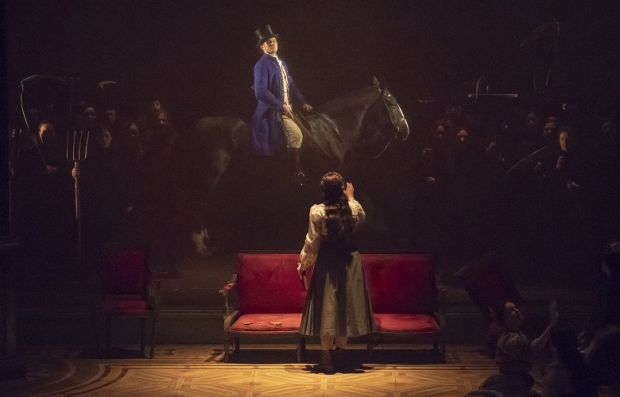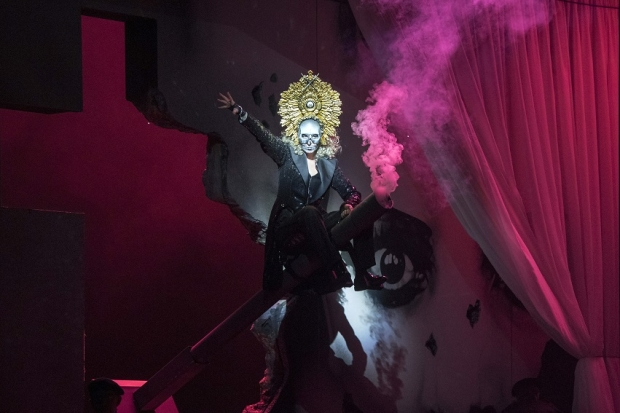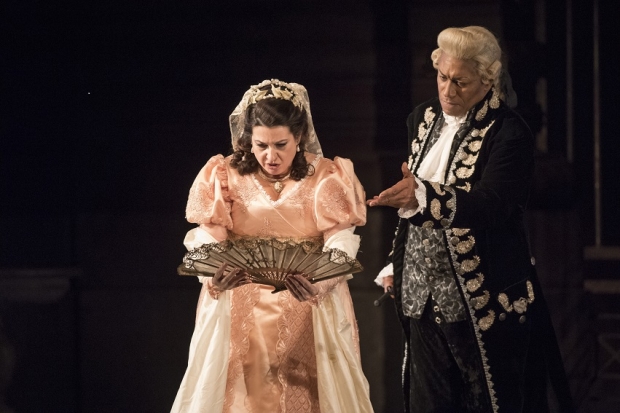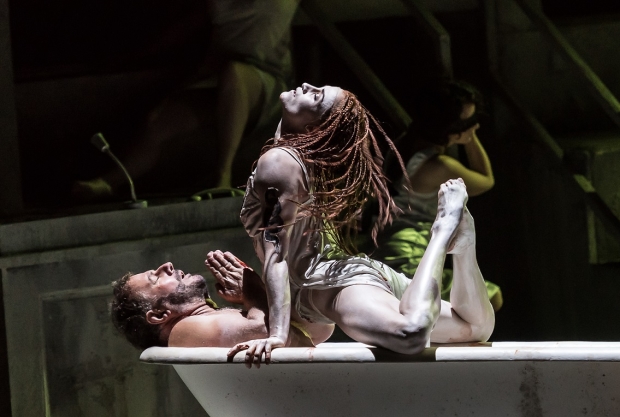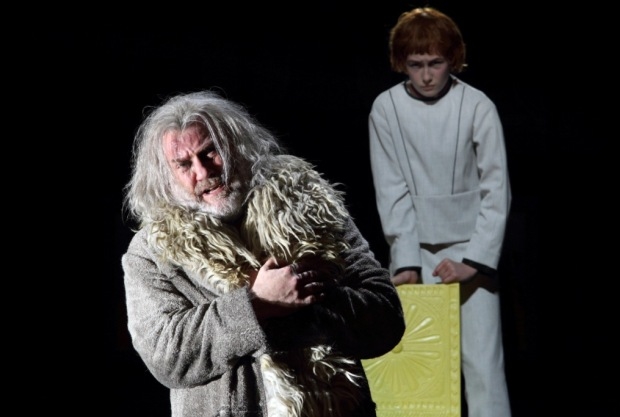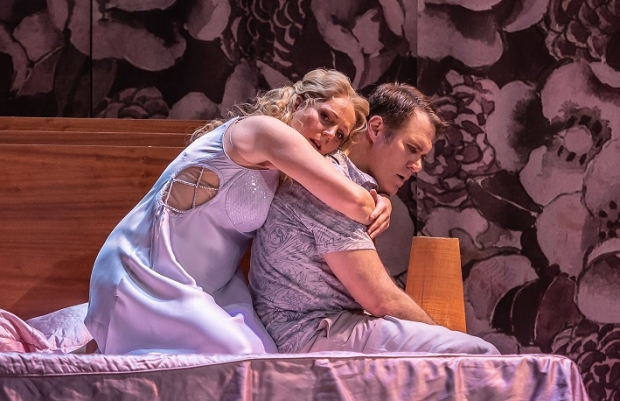Review: War and Peace (Wales Millennium Centre)
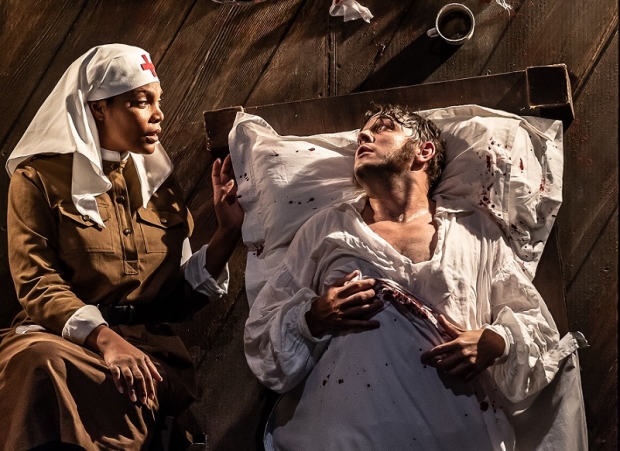
© Clive Barda
Eye-popping spectacle and a cast of thousands. No, not Welsh National Opera's Prokofiev – not quite, anyway – but Sergei Bondarchuk's gargantuan Soviet-era movie whose battle scenes were enacted by whole battalions of Red Army grunts. While Voyna i mir is a film to adore – it's huge, accessible and satisfying – WNO is ill-advised to show clips from it above its own cast of dozens. Such borrowings are the ultimate in upstaging and the Battle of Borodino happens down a creative cul-de-sac.
That's a shame, because so much about this War and Peace is magnificent. There is no other word. As a military exercise with Field Marshal David Pountney directing the troops and First General Tomáš Hanus ensuring a confident traversal of Prokofiev's mighty score, baton-charging at the head of 90 blazing musicians and an awesome chorus, the achievement is prodigious. Their victory is a small miracle, especially given that the entire WNO army has marched against the headwind of economic limitations.
How to turn Tolstoy's sprawling saga into a manageable night of opera? Prokofiev's answer along with co-librettist Mira Mendelson was simple: reorder the narrative so that the opera's first half is Peace and the second War, then cut, cut, cut. So much has gone, from Prince Andrei's back story to the entire Battle of Austerlitz, in order to bring it in at under four hours. Andrei himself disappears for much of act one,it seems an age before Pierre's first entrance, and Natasha does little more than flit in and out of the drama.
Yet it works. Aficionados of the novel can rest assured: Pierre's pivotal journey is depicted with a psychological fervour that commands the drama and gives the excellent Mark Le Brocq a role to savour. The imposing tenor gives a terrific performance, and even when he strains on some of the high tessitura it's somehow fitting.
Lauren Michelle surmounts the opera's undercharacterised writing for Natasha and locates both the sweetness and steel in Tolstoy's heroine, while Jonathan McGovern sings Andrei with a yearning clarity that sends Rita McAllister's functional new English translation ringing through the auditorium.
A long roster of distinguished singers adds class in, for most of them, multiple roles. David Stout makes a charismatic Napoleon while Simon Bailey as the one-eyed leader Mikhail Kutuzov finds startling vocal colours for what might easily have been a single-note character. Jurgita Adamonytè is excellent as the needling Hélène, as is Adrian Dwyer as the amorous wrong'un Anatole. then there's… but the list is endless. And for once that's almost true.
Malcolm Rippeth lights a multi-functional frame set by Robert Innes Hopkins (recycled from In Parenthesis, if you saw that) with infinite resourcefulness, while the lion's share of WNO's budget appears to have been handed to Marie-Jeanne Lecca who conjures hundreds of sumptuously detailed Russian costumes.
Although Pountney's production contains a few squirm-inducing overstatements during a heavily-populated first act where establishment of character can be tricky, this War and Peace remains an extraordinary achievement. His most memorable inventions are the burning of Moscow (with a thrilling ‘how-do-they-do-that?' video by David Haneke) and the brilliant yet simple staging of Andrei's death. Forget movie night; these are the moments – and there are plenty of others – where theatricality is king.



